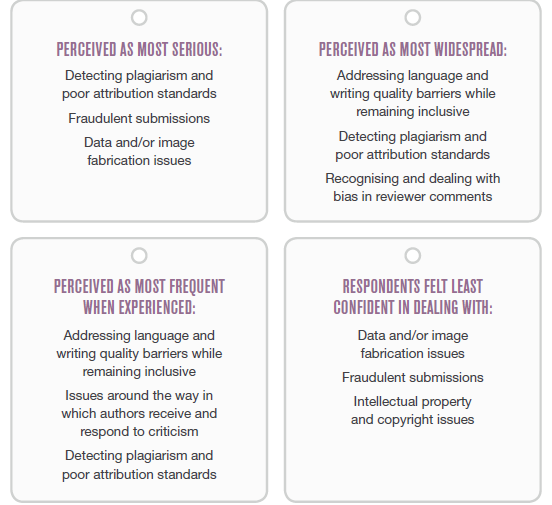Exploring Publication Ethics Issues in the Arts, Humanities, and Social Sciences
A COPE (Committee on Publication Ethics) study (2019)
Executive Summary
COPE (Committee on Publication Ethics) is a non-statutory body which aims to provide practical publication ethics guidance for journal editors working in all research disciplines. COPE was first conceived by an editor of a specialist medical journal at the BMJ Publishing Group but has since grown to become a fully multidisciplinary organisation. As a result of perceptions within COPE that some members not in Science Technology and Medicine (STM) disciplines might not consider COPE to be as relevant, in early 2019 COPE, with the support of Routledge (part of the Taylor & Francis Group), commissioned primary research to better understand the publication ethics landscape for editors working on journals within the arts, humanities, and social sciences. The research used a two-stage methodology: first exploring the issues qualitatively via two online focus groups with a diverse group of journal editors from the arts, humanities, and social sciences, before creating and disseminating an online survey.
The survey received 656 admissible returned forms.
Are arts, humanities, and social sciences editors/journals aware of COPE and familiar with the work it does?
What publication ethics issues do arts, humanities, and social sciences editors/journals currently face?
Arts, humanities, and social sciences editors who took part in the survey thought that, in the future, technological changes and a data-driven, performance-based academic culture were likely to exacerbate the key ethical issues they currently struggled with.






